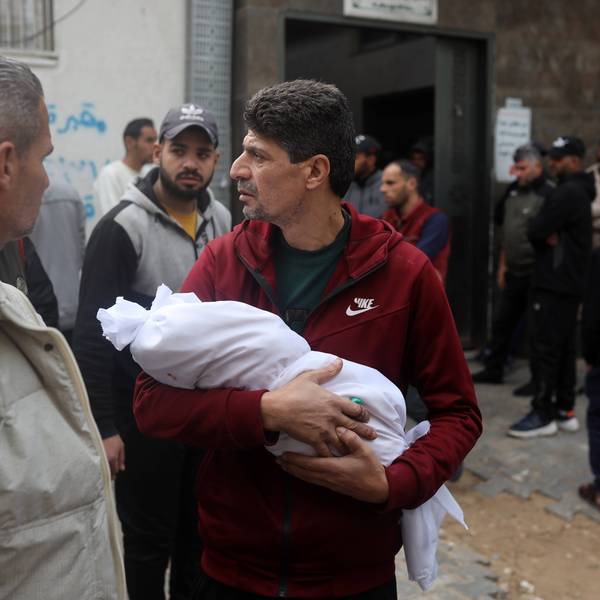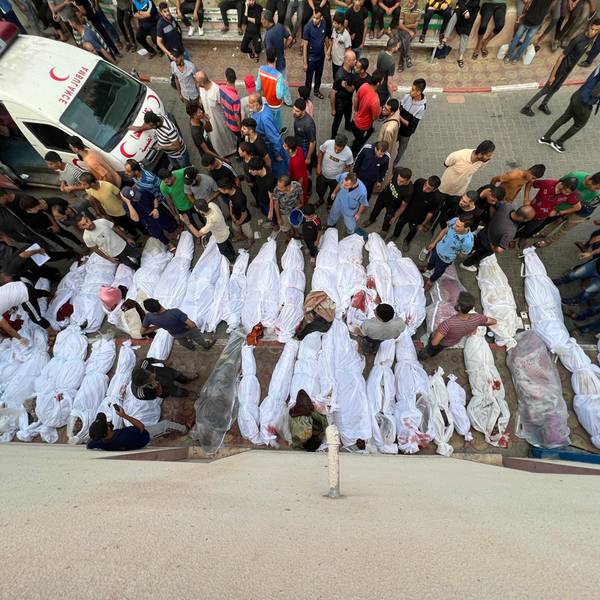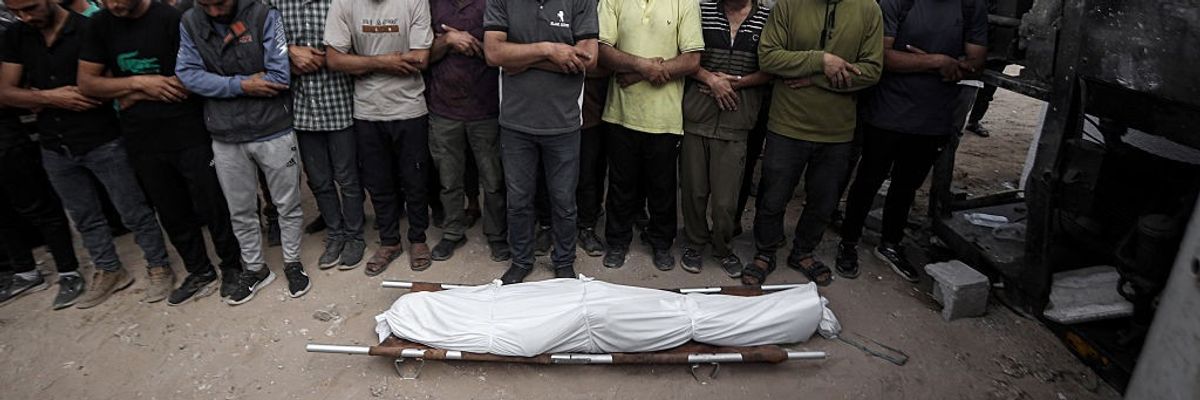Another Israel Defense Forces soldier has spoken out publicly against the IDF's brutalization of civilians in Gaza.
In an interview with the British Sky News Monday, a reservist who has served three tours of duty in Gaza spoke candidly about orders he and other soldiers received to shoot any person arbitrarily who entered defined "no-go zones," regardless of whether they posed a threat.
The soldier gave his testimony anonymously for fear of being labeled a "traitor." However, he identified himself as a reservist from the 252nd Division who was stationed at the Netzarim Corridor, a road which divides North and South Gaza.
The area has been one of the most critical strategic points for Israel's occupation of Gaza, allowing control over the flow of aid and people.
The soldiers, stationed on the edge of a civilian neighborhood in the homes of displaced Palestinians, were ordered by their commanders to kill anyone who passed an "imaginary line" that marked the beginning of the military stronghold, the soldier said.
"We have a territory that we are in, and the commands are: everyone that comes inside needs to die," the soldier said. "If they're inside, they're dangerous, you need to kill them. No matter who it is."
"It was like pretty much everyone that comes into the territory, and it might be like a teenager riding his bicycle," he said.
The soldier said that the prevailing attitude among the troops was that all Palestinians were "terrorists," and that this attitude was reinforced by commanders.
"They say if someone comes here, it means that he knows he shouldn't be there, and if he still comes, it means he's a terrorist," he said. "This is what they tell you. But I don't really think it's true. It's just poor people, civilians, that don't really have too many choices."
He said that when soldiers in the corridor kill civilians, a lot of them "think that they did something good."
That sense of impunity, he said, comes from the higher-ups.
"Some commanders can really decide to do war crimes and bad things and don't face the consequences of that," he said.
"You can't be in this scenario for so long and not normalize it," he said. "Killing is normalized, and you don't see the problem."
This anonymous soldier is the latest of many who have decided to speak out against atrocities their military has committed.
His testimony comes on the heels of a harrowing Haaretz expose, in which several other Israeli soldiers described being ordered to shoot Palestinian aid-seekers, turning the U.S.-Israeli administered Gaza Humanitarian Foundation (GHF) sites into "killing fields." Others provided The Associated Press with video of soldiers bombarding civilians in an aid site with pepper spray and stun grenades.
Others have spoken out against the attacks on civilians near the Israeli stronghold at Netzarim.
In April, a report by the Israeli veterans group Breaking the Silence detailed many more accounts of brutality over the first year-and-a-half of the war. It included accounts of Israeli soldiers razing agricultural land, bulldozing entire city blocks, and designating "large swathes of the land" that "were turned into massive kill zones."
"All of them were wiped off the face of the Earth. Annihilation, expropriation, and expulsion are immoral and must never be normalized or legitimized," the report said.
The soldier who spoke to Sky News said his deployment left a similar stain on his conscience.
"I kind of feel like I took part in something bad, and I need to counter it with something good that I do, by speaking out, because I am very troubled about what I took and still am taking part of, as a soldier and citizen in this country," he said. "I think the war is... a very bad thing that is happening to us, and to the Palestinians, and I think it needs to be over."




